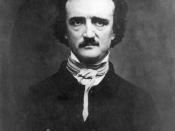For a play to achieve tragic stature it must meet a number of key criteria: a protagonist with fatal flaws while still having potential; grandeur, especially in the language; and catharsis in the final scene. On the other hand, pessimism should give the audience no hope, especially concerning the protagonist and life after the conclusion of the play. Whether Streetcar achieves this tragic stature or whether it is merely pessimistic has been a debate amongst scholars since the plays premiere in December 1947.
Szeliski is one of the principal critics of the labelling of Streetcar as a tragedy. He claims that because Williams is always ÃÂtoo defensively close to his theme of sensitivity-horribly-outnumberedÃÂ he fails to develop it to achieve tragic structure. He is supported by the views of Falk and Nelson, who says that Williams ÃÂcannot perceive the possibility of completion either on earth or in the heavens. Rather he is a poet of the inadequateÃÂ, something that Williams agrees with, saying in a letter to Joseph Hazan, a close friend, that ÃÂI saw very clearly the central fact of life and all the rest as being little motes in the sun, circulating around it.ÃÂ
On the other hand, Reid claims that part of tragedy is individuals failing to come to terms with reality and evolve, as in Macbeth.
Blanche DuBoisÃÂ principal tragic flaw is her failure to come to terms with the reality of her past, choosing to hide it from herself and all around her until Stanley, in Scene VII, reveals the truth. This detachment from reality is shown throughout the play through her often-fanciful language, such as, ÃÂhow pretty the sky is! I ought to go there on a rocket that never comes down.ÃÂ However, although she does not take much action to rectify this...


